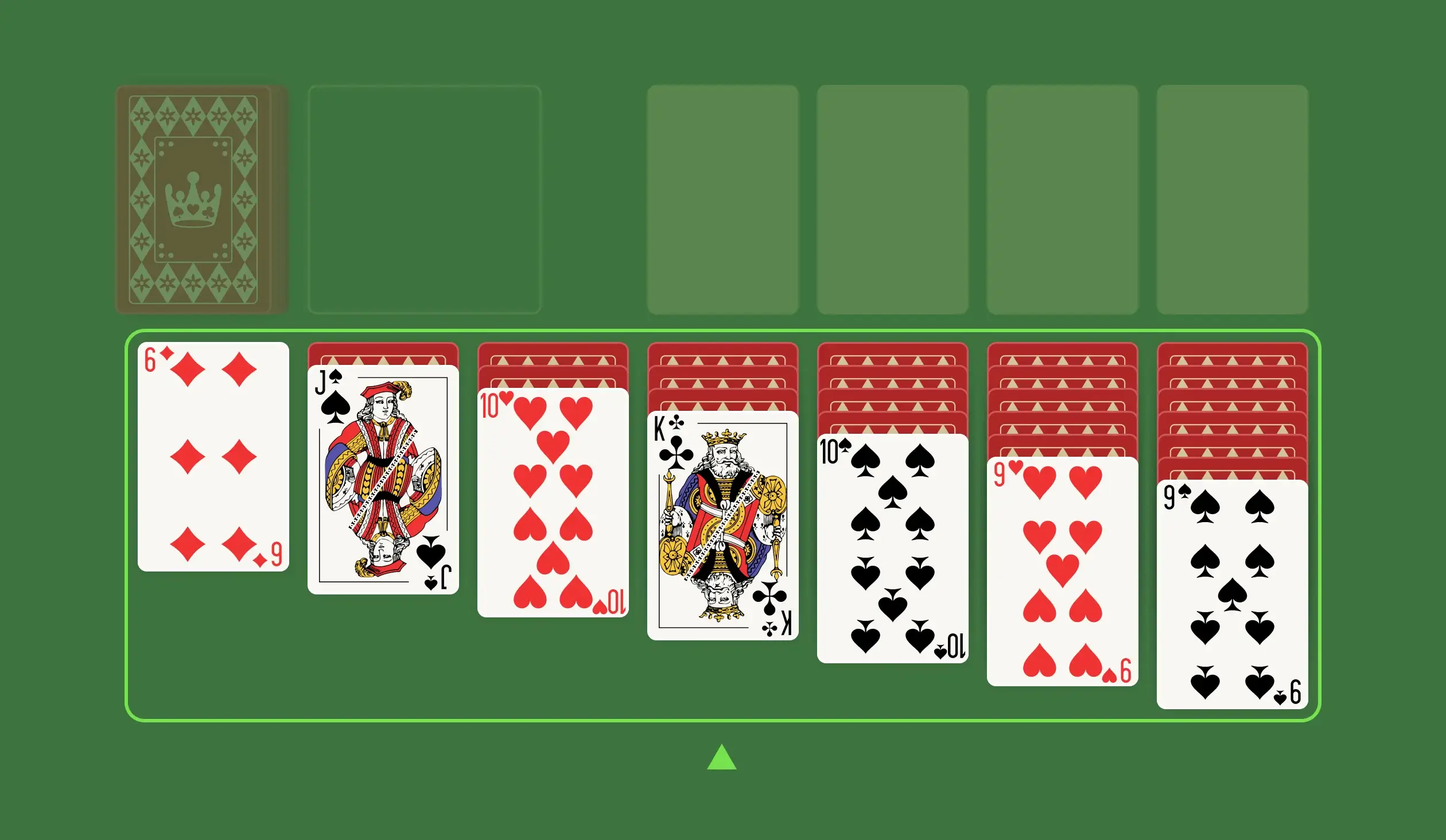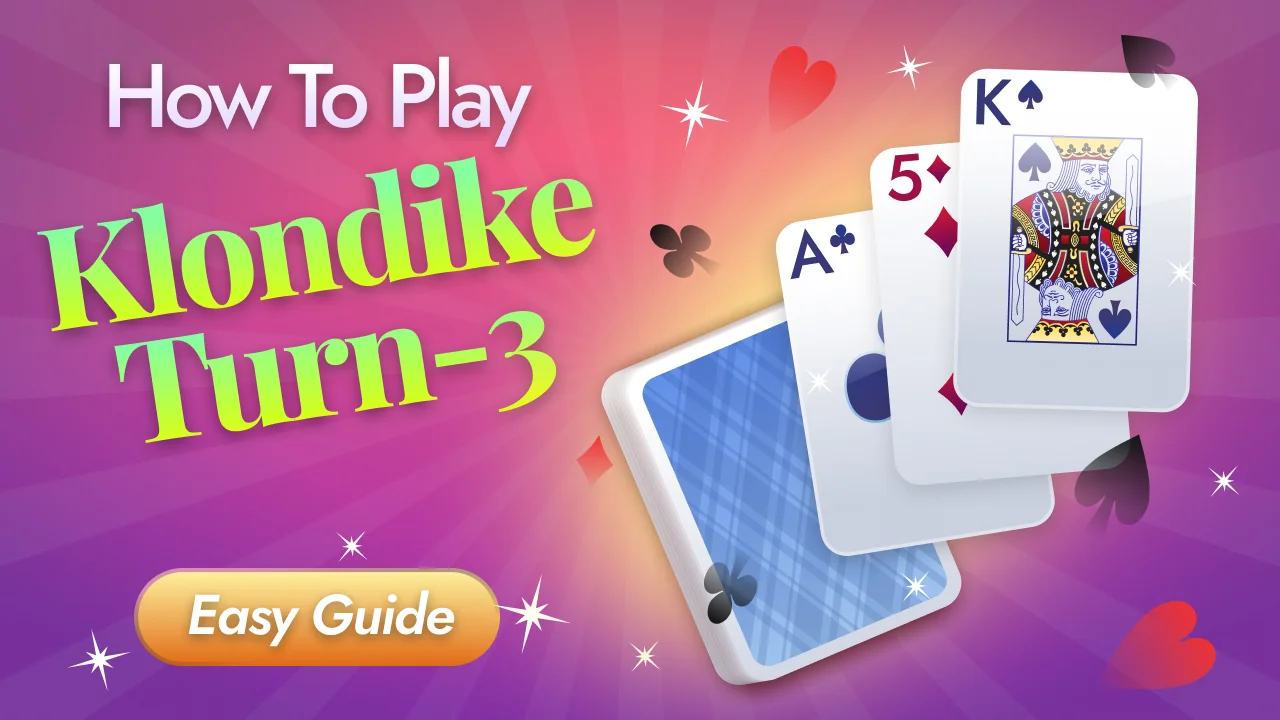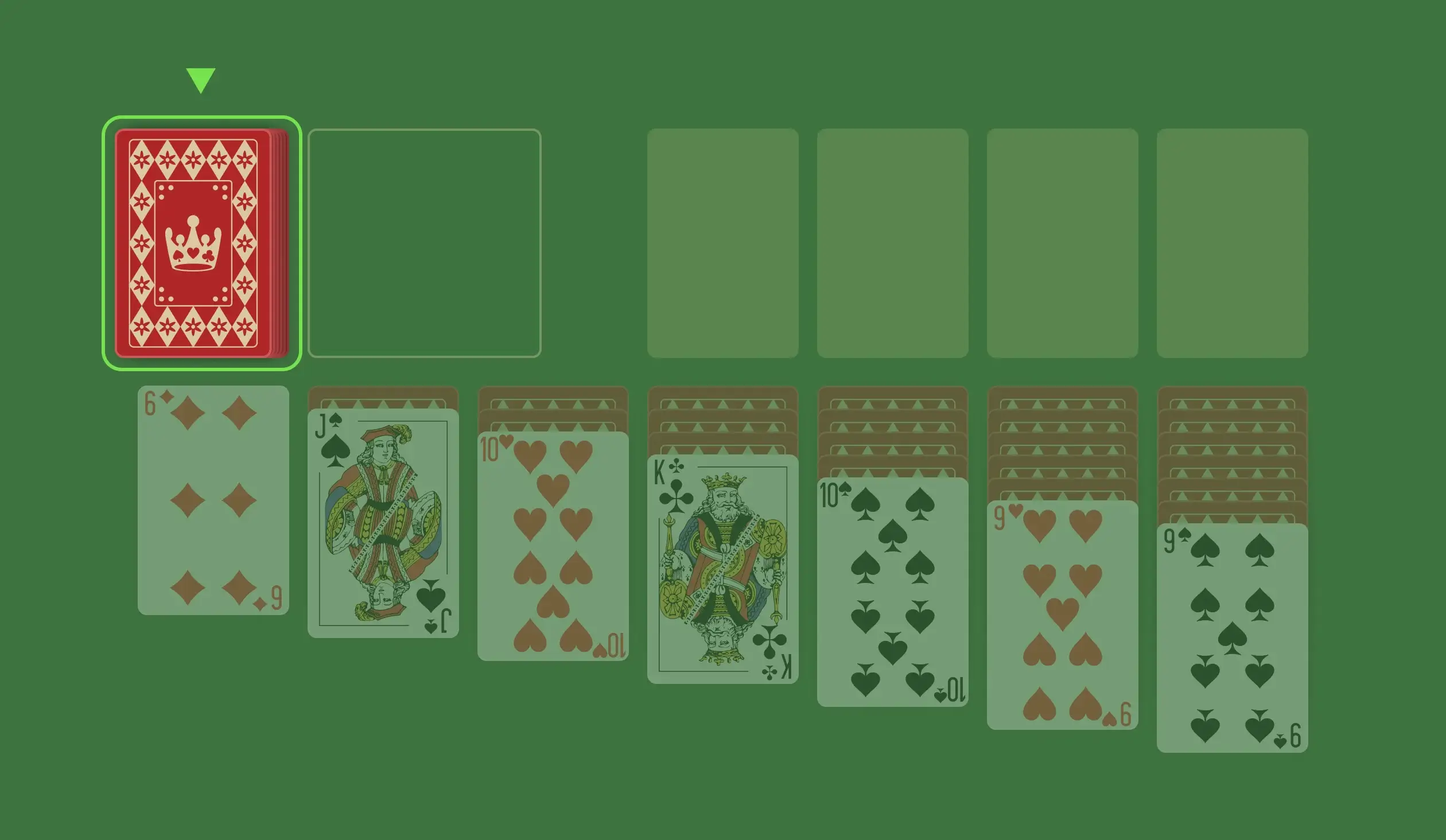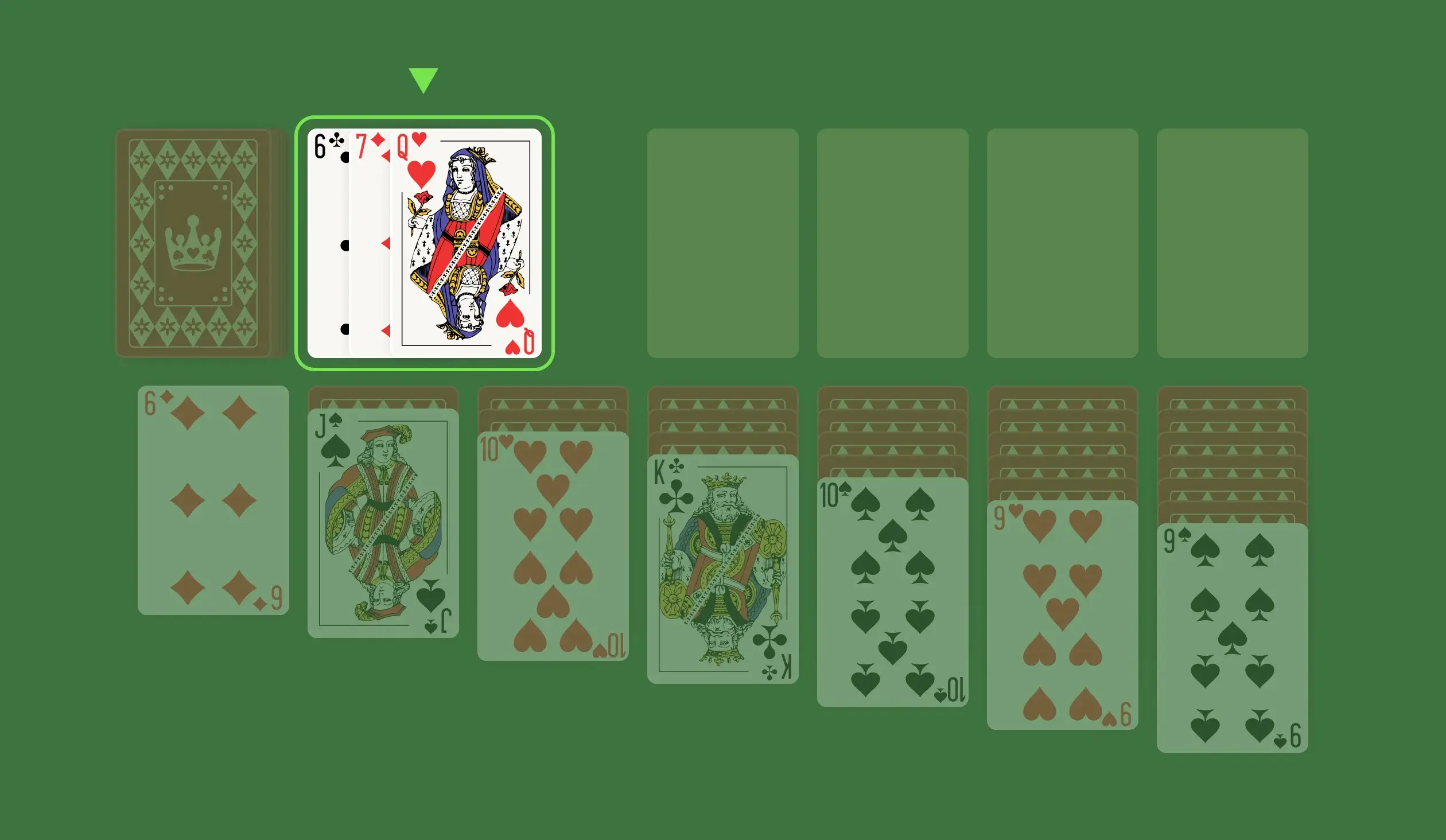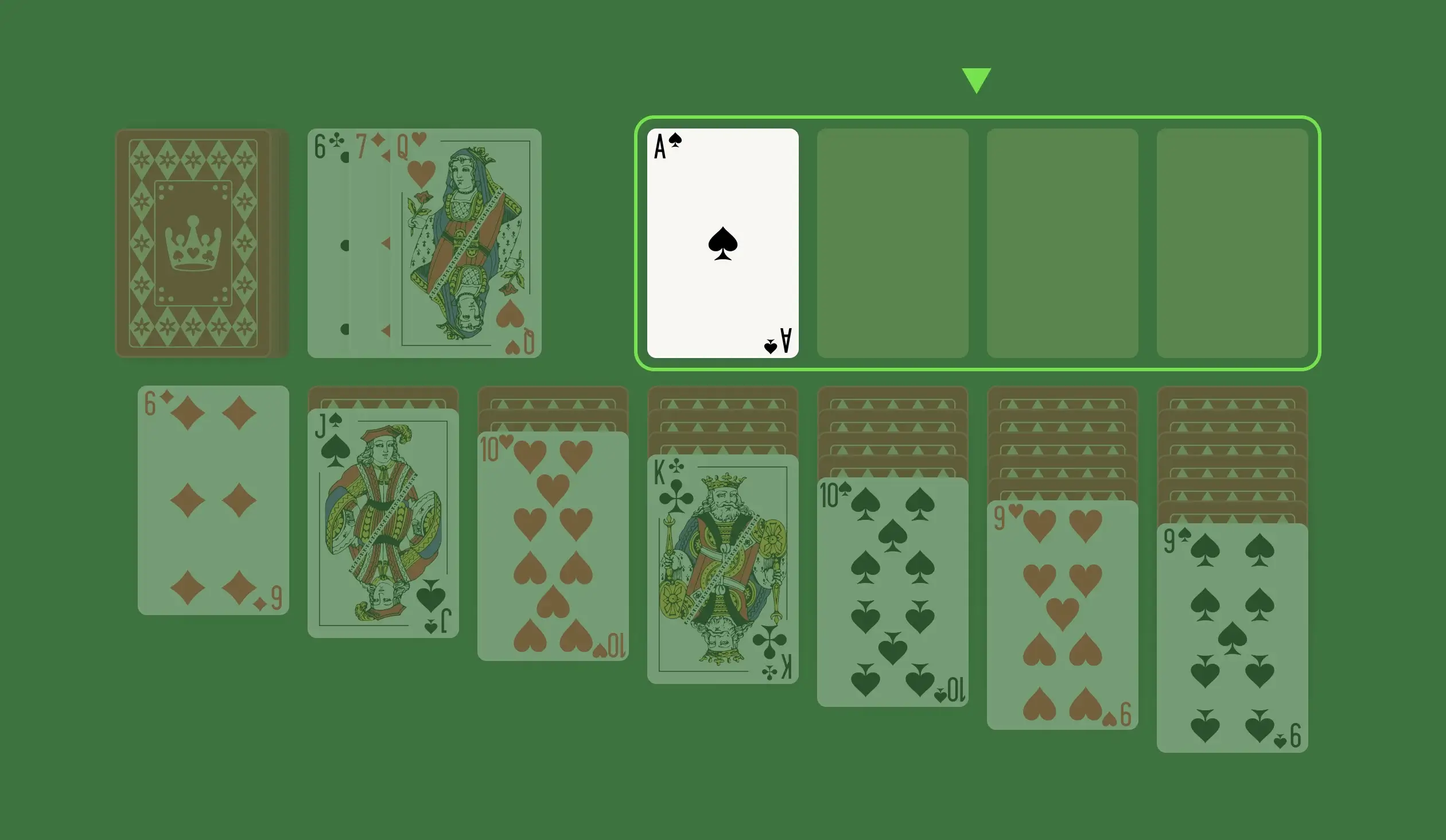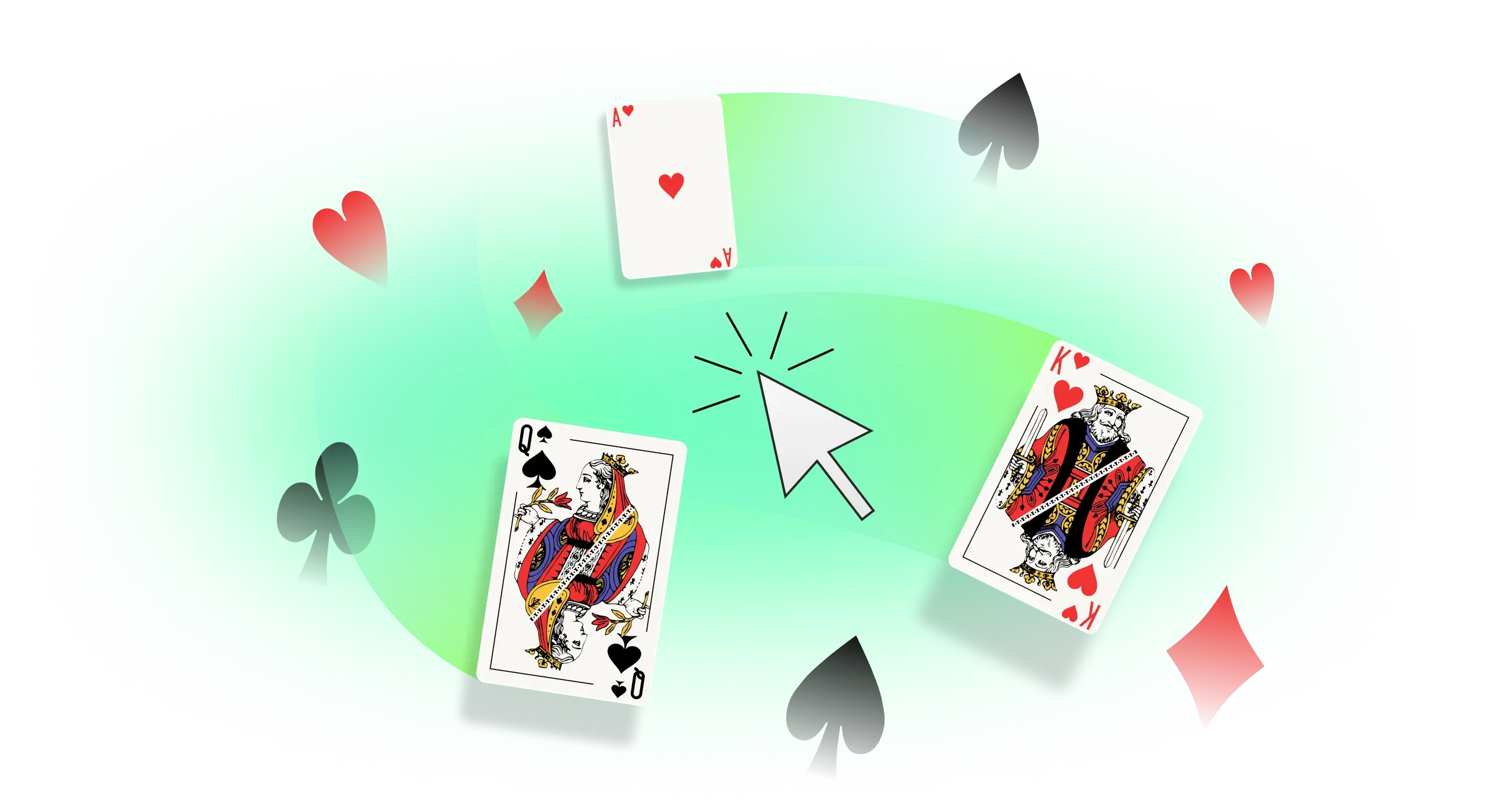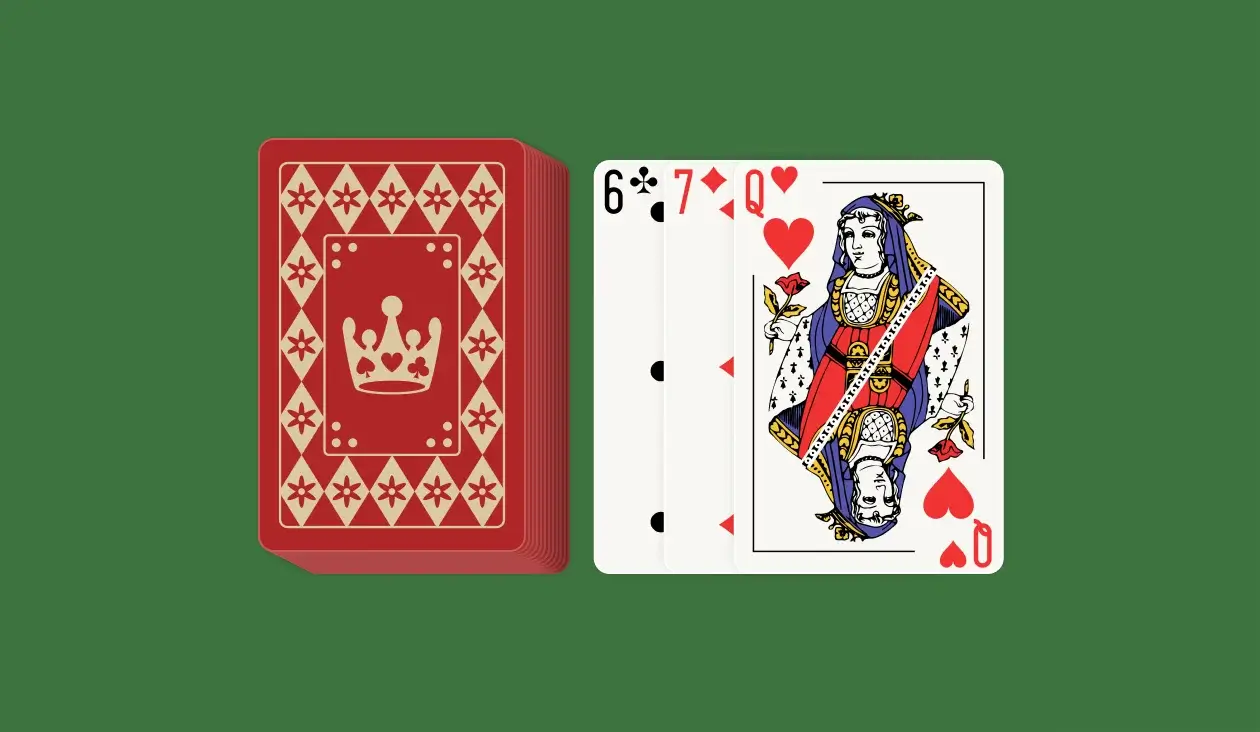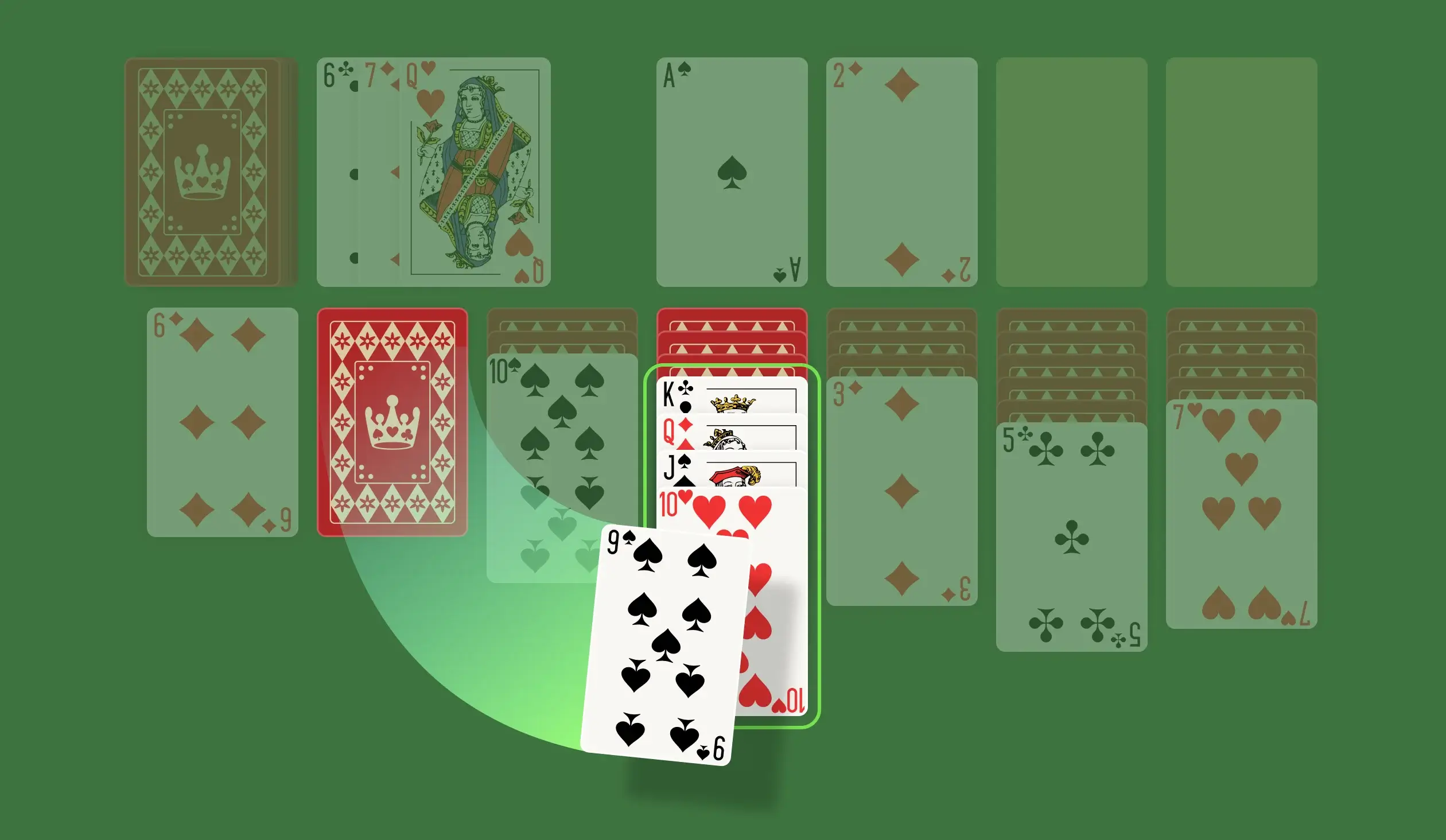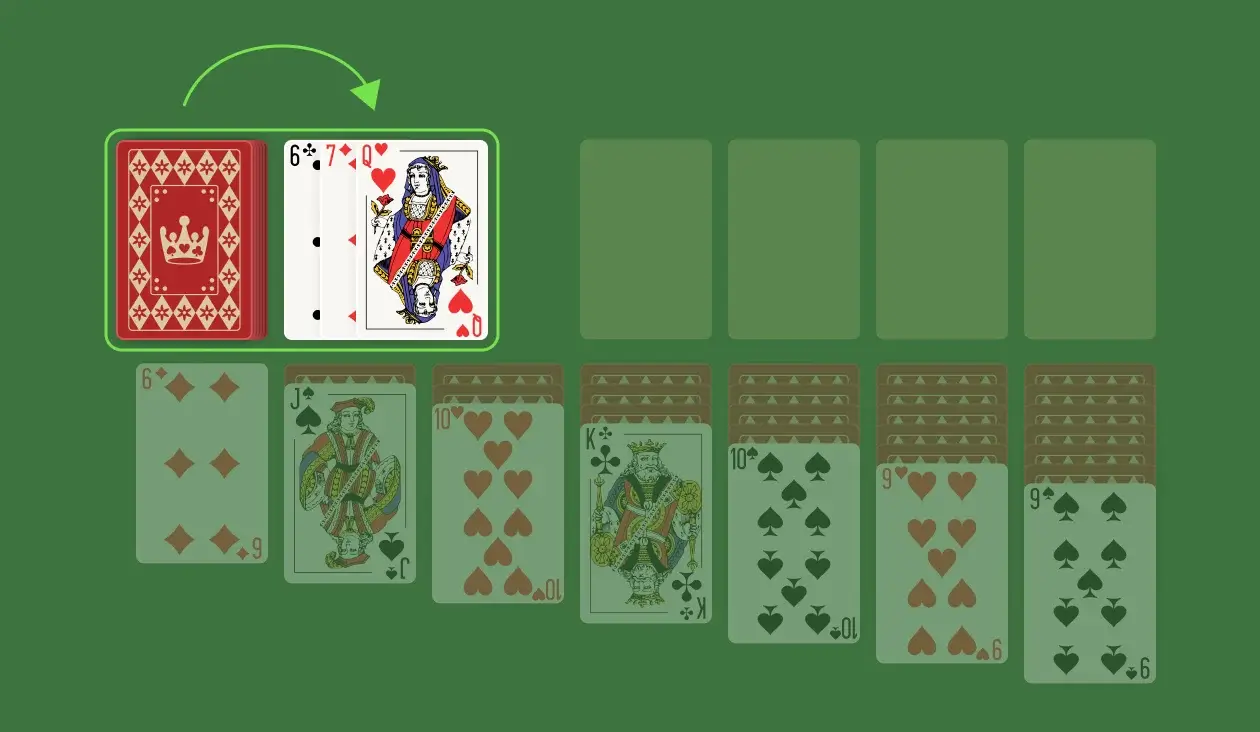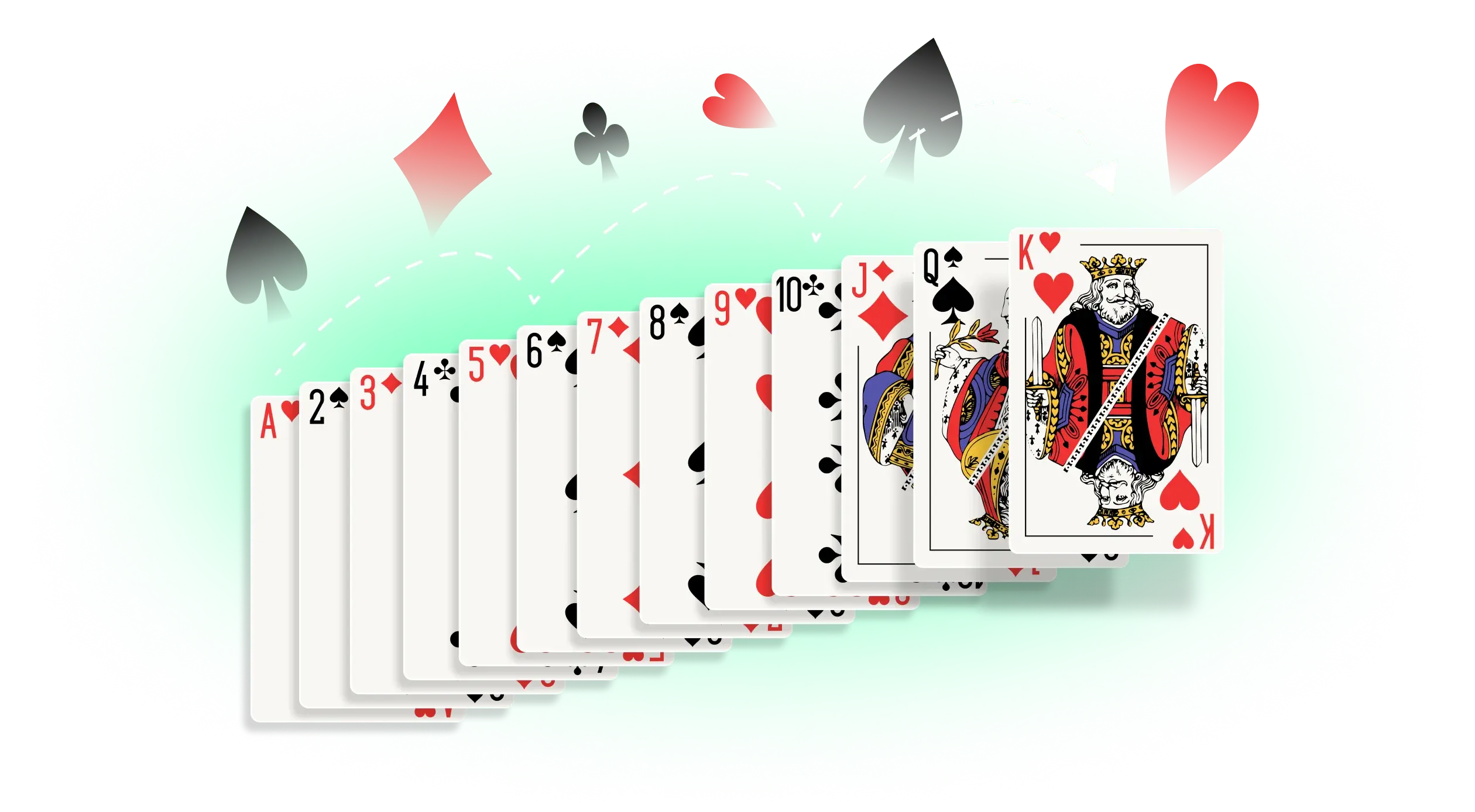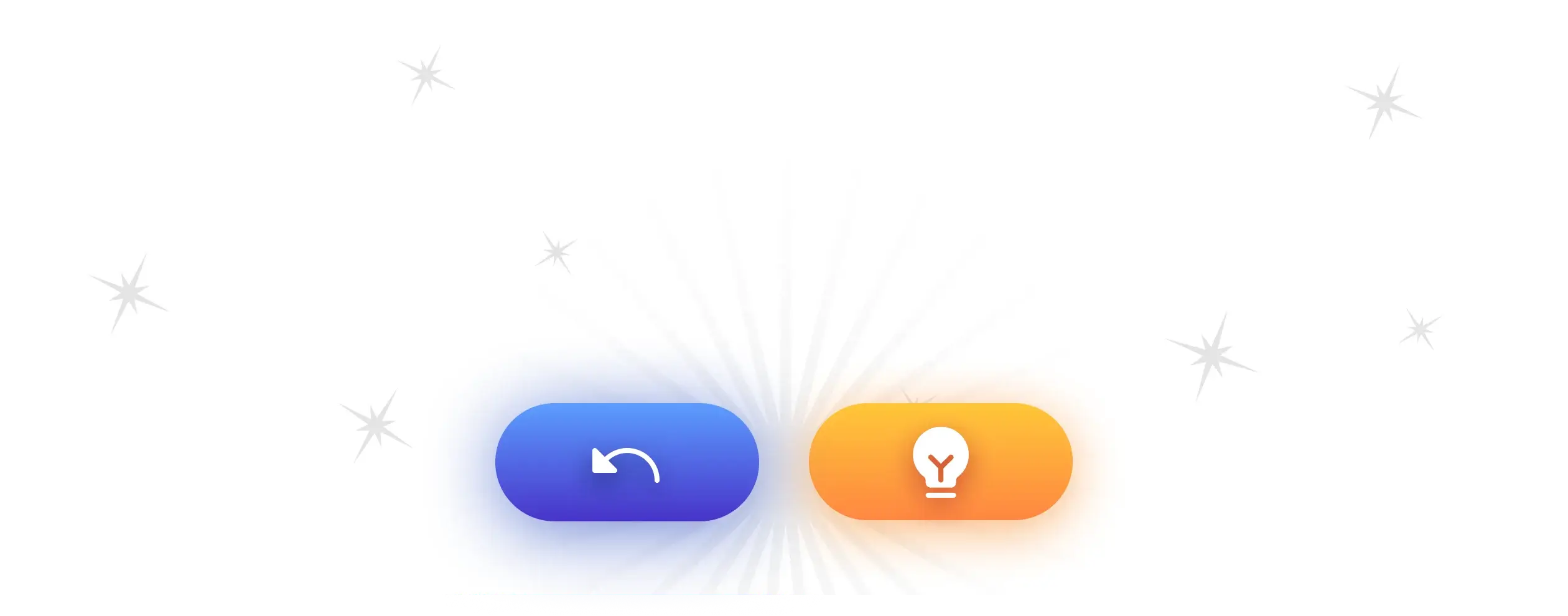1.The Tableau
The Tableau is made up of 28 cards drawn randomly from the deck and arranged into seven columns. The number of cards in each column matches its position, starting from the left. For example, the first column has one card, the second has two, the third has three, and so on. Although all the cards are face-up, only the top card in each column can be played.
